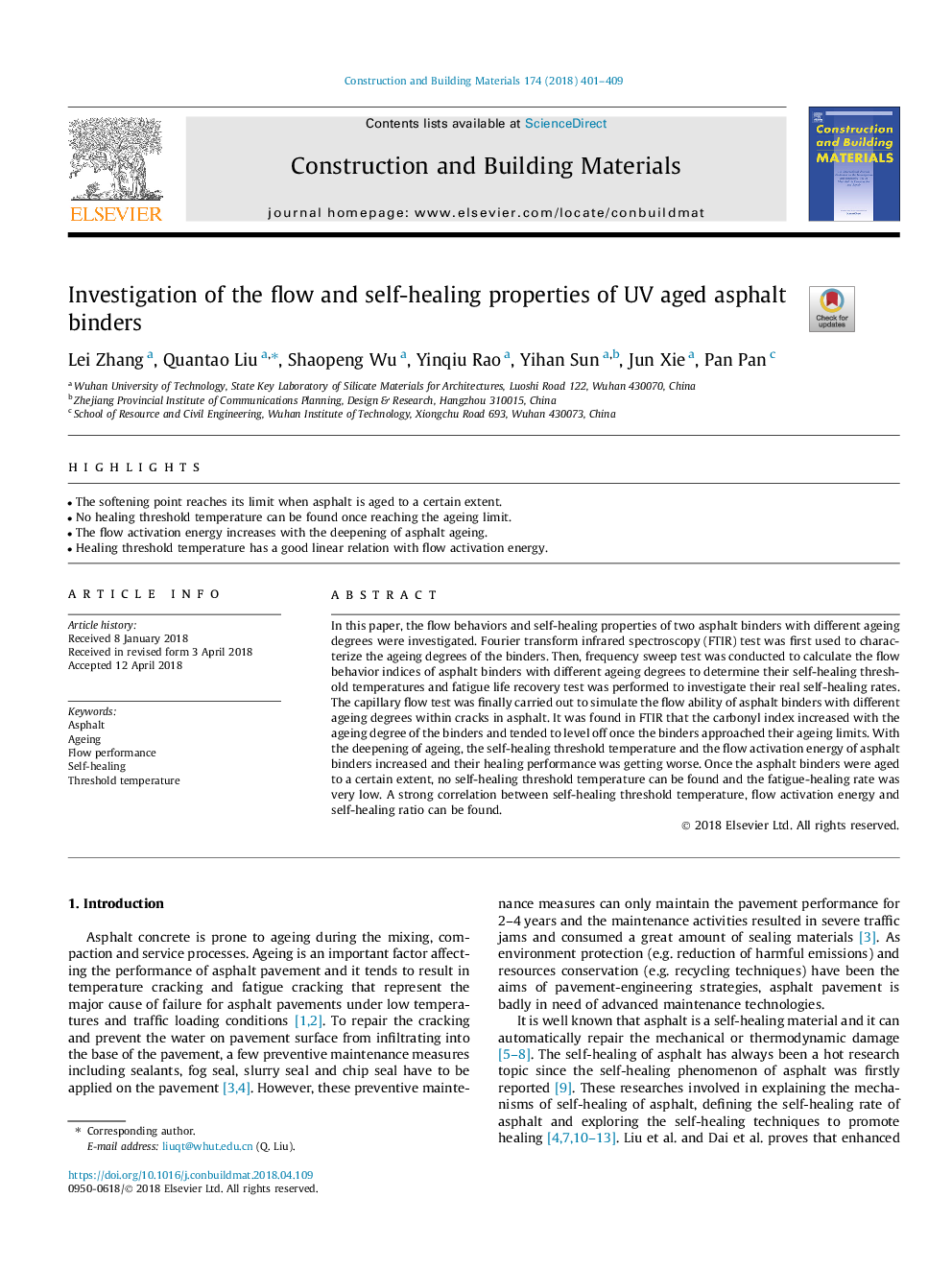| Article ID | Journal | Published Year | Pages | File Type |
|---|---|---|---|---|
| 6713505 | Construction and Building Materials | 2018 | 9 Pages |
Abstract
In this paper, the flow behaviors and self-healing properties of two asphalt binders with different ageing degrees were investigated. Fourier transform infrared spectroscopy (FTIR) test was first used to characterize the ageing degrees of the binders. Then, frequency sweep test was conducted to calculate the flow behavior indices of asphalt binders with different ageing degrees to determine their self-healing threshold temperatures and fatigue life recovery test was performed to investigate their real self-healing rates. The capillary flow test was finally carried out to simulate the flow ability of asphalt binders with different ageing degrees within cracks in asphalt. It was found in FTIR that the carbonyl index increased with the ageing degree of the binders and tended to level off once the binders approached their ageing limits. With the deepening of ageing, the self-healing threshold temperature and the flow activation energy of asphalt binders increased and their healing performance was getting worse. Once the asphalt binders were aged to a certain extent, no self-healing threshold temperature can be found and the fatigue-healing rate was very low. A strong correlation between self-healing threshold temperature, flow activation energy and self-healing ratio can be found.
Related Topics
Physical Sciences and Engineering
Engineering
Civil and Structural Engineering
Authors
Lei Zhang, Quantao Liu, Shaopeng Wu, Yinqiu Rao, Yihan Sun, Jun Xie, Pan Pan,
